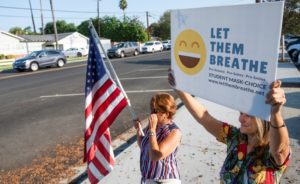
Government advocate for small business releases its annual report.
The U.S. Small Business Administration (SBA) achieved nearly $11.7 billion in regulatory cost savings for small businesses last year, according to the federal agency’s recently released annual Report on the Regulatory Flexibility Act (RFA).
The RFA requires government agencies to consider the impact of their regulations on small businesses. The annual report, assembled by the SBA’s Office of Advocacy, updates Congress on agencies’ compliance with that goal, as mandated by Executive Order 13272. The Advocacy office is tasked with ensuring that agencies adhere to both the RFA and executive order.
At $8.3 billion, the single largest cost saving the SBA claims to have achieved concerned the Americans with Disabilities Act, which bars discrimination in the provision of public accommodations. SBA’s efforts purportedly convinced the Department of Justice to not adopt a proposal that would have given small business credit for spending a portion of revenue on ADA building modifications. Industry representatives were worried that this “small business safe harbor” might have been construed as setting up a minimum spending requirement for small businesses.
Another notable regulatory rule change, highlighted in President Obama’s 2012 State of the Union address, is the elimination of milk and milk product manufacturing plants from environmental rules about oil spills. This change is expected to save dairy farmers $146 million annually.
In addition to these individual achievements, the SBA’s report also assessed general agency compliance with the RFA and Executive Order 13272 along three parameters: whether the agency publishes rules consistent with the RFA; whether the agency notifies SBA of draft rules that are likely to affect significantly a large number of small businesses; and how responsive the agency is to SBA’s comments.
In 2011, of 26 agencies, five reportedly did not comply with the RFA’s written procedures, although four of those were independent regulatory agencies not subject to the RFA and the executive order. Only two agencies, the departments of Health and Human Services and the Interior failed to notify SBA of relevant draft rules. These same two agencies were the only two that SBA claims failed to respond adequately to SBA’s comments.



